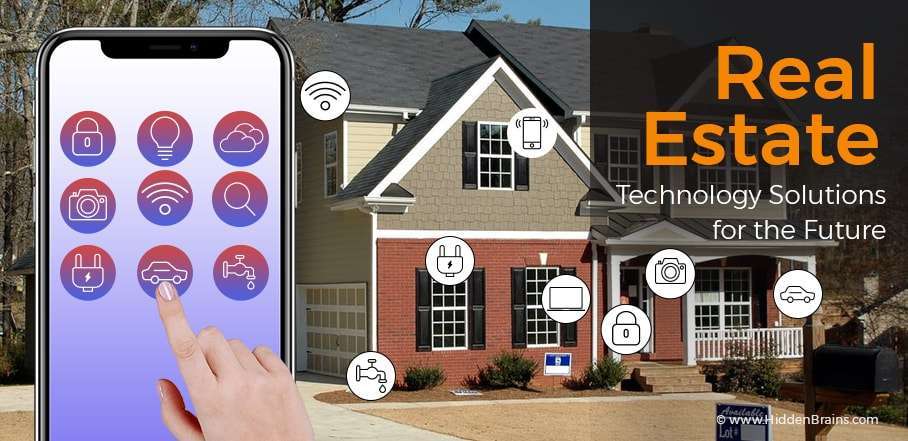Table of Contents
As we take a leap ahead the real estate industry is at the center of economic and social change with great migration to the cities will be underway. Cities will be growing at a phenomenal level across the globe in different continents such as Asia, Africa, the Middle East and Latin America. Even the developed Western nations will witness growth, however at a slow rate.
Global construction output is expected to almost double to $15 trillion by 2025, from $8.7 trillion in 2012, while the global stock of investable real estate will rise even more quickly, from $29 trillion in 2012 to about $45.3 trillion in 2020.
Demographic shifts also dramatically affect real estate. The growing middle-class urban populations in Asia, Africa and South America will need far more housing. On the other hand, the advanced economies’ population will demand specialist and commercial real estate.
Emerging Technologies: The New Wave of Change
Real Estate Mobile solution can help agents and property managers to connect with customers on the go, as well as effective management of leads. From cloud computing to social networks, clients want real estate agents to make optimum use of technology. Mobile apps enable advanced features such as social sharing and document management which result in improved efficiency.
Real estate professionals are always on the move, with brokers, agents, landlords, and developers visiting properties with clients. Mobile Apps for real estate business allow agents and managers to view and showcase the property on their smart devices, as well as easy access to data such as space details, appointments, reports and other inputs required for capturing and tracking lead status.
Adopting more advanced technology is rapidly becoming imperative for the real estate industry. Enterprise level organization needs to have a streamlined big data strategy along with advanced analytics that provides insights for strategic planning and decision making. On the other hand, companies at a relatively nascent level of adoption need to understand the value proposition of each of these technologies.
- Analyze and align technology needs with that of the tenants.
- Assess value proposition of new technologies.
- Narrow down on the required systems, keeping scalability & responsiveness in mind.
Here are few ways businesses can leverage technology to generate optimum results and make business more interactive, responsive and transformative. It is important to partner with a leading mobile app development company to leverage emerging technologies.
Augmented Reality
Augmented reality (AR) is an increasingly popular technology gaining popularity in the real estate industry as they allow real estate professionals and agencies to offer a unique experience to potential buyers by digitally presenting properties from anywhere in the world. AR works by augmenting real-world objects with computer animations and algorithms using sound, video, and graphics. It provides real-world information and presents information in an intuitive way so that virtual elements become part of the real world.
Virtual Reality
VR is an exciting new technology that allows the real estate industry the ability to tell a story like never before. Virtual Reality can create immersive experience and representation of alternative world utilizing combination of M2M, IoT, sensors, mobile devices, or VR headsets. Using technology solutions, interactive virtual home tours, guided visits to replicate conventional promotional videos in the form of 360-degree videos. Real estate agents can use VR technology to show exterior and interior of properties to get a clear look at what’s being offered.
IoT
Technology is changing dynamics of real estate. Applications have the potential to add new ways to create value for customers, differentiate from competitors, and even find new sources. IoT signifies the next wave of change with access to data from mobile phones and wearables to create new productivity for operations and service providers, and create more value for building owners.
Artificial Intelligence
Artificial intelligence is redefining real estate, eliminating guesswork and adding precision. AI can evaluate a property, conduct a risk analysis and estimate how much money an investment has to earn. With breakthrough technology, real estate agencies can greatly increase efficiency in finding and rehabilitation of properties.
AI searches are becoming increasingly advanced with several layers of information for specific properties. Users can get details about good neighborhoods and details about properties before buying.
Chatbots
Real estate businesses incorporate chatbots on their websites to answer common investment questions, thus optimizing time management for these companies. Several real estate companies and lenders use chatbots to save on customer service costs. Chatbot helps increase lead conversion rates, among other important customer service features.
Real Estate Mobile & Web App Development
Real estate mobile application and web development solutions enables effective property search with advanced features, such as maps, virtual walkthrough and direction technologies and the use of the latest AR, VR, and 3D technologies.
Finally
Real estate companies need to stay abreast of new advancements in technology and fasten technology adoption on a regular basis. How these emerging technologies will affect the one-on-one interactions of price negotiation and selling properties remains to be seen. Only future will tell.










































